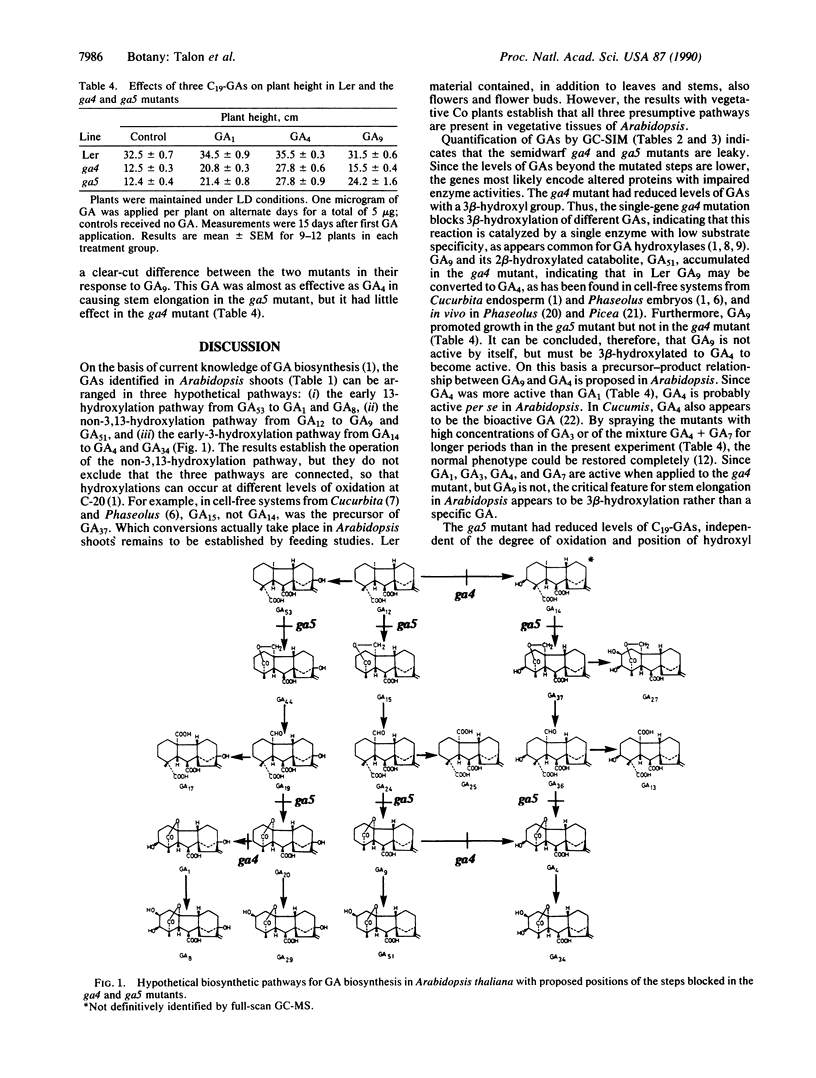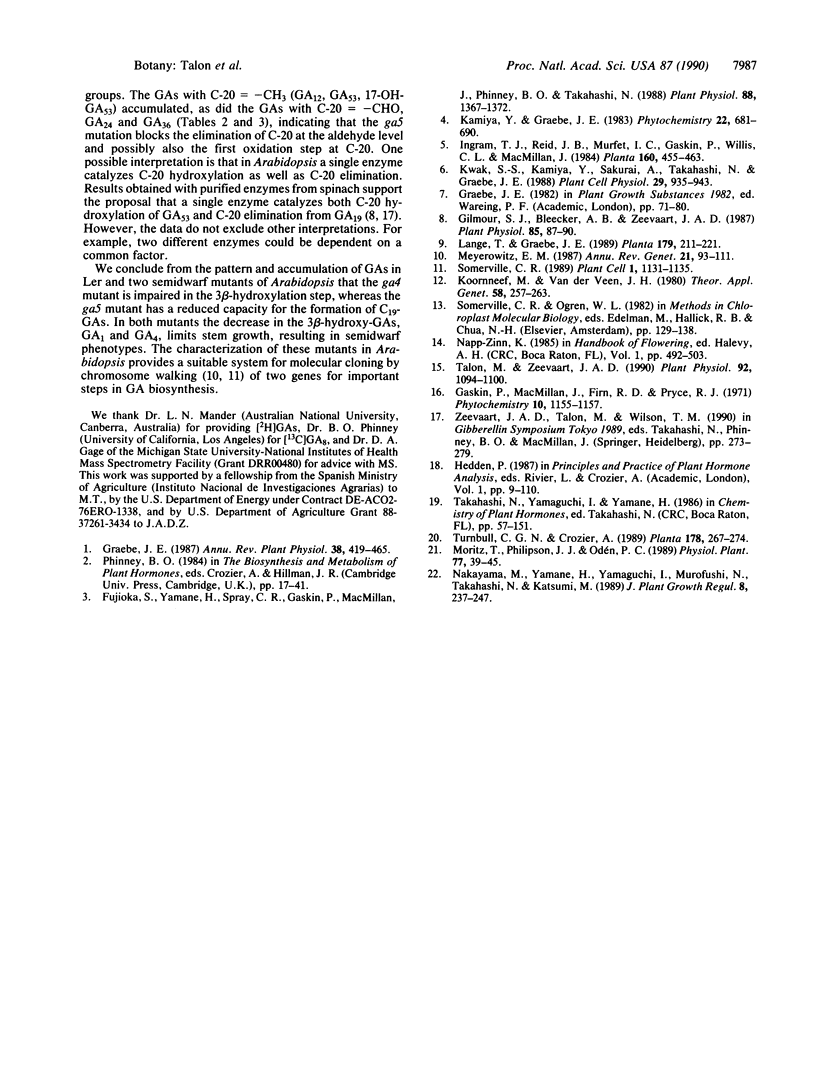Abstract
Twenty gibberellins (GAs) have been identified in extracts from shoots of the Landsberg erecta line of Arabidopsis thaliana by full-scan gas chromatography-mass spectrometry and Kovats retention indices. Eight of them are members of the early-13-hydroxylation pathway (GA53, GA44, GA19, GA17, GA20, GA1, GA29, and GA8), six are members of the early-3-hydroxylation pathway (GA37, GA27, GA36, GA13, GA4, and GA34), and the remaining six are members of the non-3,13-hydroxylation pathway (GA12, GA15, GA24, GA25, GA9, and GA51). Seven of these GAs were quantified in the Landsberg erecta line of Arabidopsis and in the semidwarf ga4 and ga5 mutants by gas chromatography-selected ion monitoring (SIM) using internal standards. The relative levels of the remaining 13 GAs were compared by the use of ion intensities only. In comparison with the Landsberg erecta line, the ga4 mutant had reduced levels of the 3-hydroxy- and 3,13-dihydroxy-GAs, and it accumulated the 13-hydroxy-GAs, except GA53, and the non-3,13-hydroxy-GAs, except GA12. The GA4 gene encodes, therefore, a protein with 3 beta-hydroxylation activity. The ga5 mutant had reduced levels of the C19-GAs, which indicates that the product of the GA5 gene catalyzes the elimination of C-20 at the aldehyde level. The ga5 mutant also had increased levels of certain C20-GAs, which indicates existence of an additional control, possibly hydroxylation of C-20. The growth-response data, as well as the accumulation of GA9 in the ga4 mutant, indicate that GA9 is not active in Arabidopsis, but it must be 3 beta-hydroxylated to GA4 to become bioactive. It is concluded that the reduced levels of the 3 beta-hydroxy-GAs, GA1 and GA4, are the cause of the semidwarf growth habit of both mutants.
Full text
PDF




Selected References
These references are in PubMed. This may not be the complete list of references from this article.
- Fujioka S., Yamane H., Spray C. R., Gaskin P., Macmillan J., Phinney B. O., Takahashi N. Qualitative and Quantitative Analyses of Gibberellins in Vegetative Shoots of Normal, dwarf-1, dwarf-2, dwarf-3, and dwarf-5 Seedlings of Zea mays L. Plant Physiol. 1988 Dec;88(4):1367–1372. doi: 10.1104/pp.88.4.1367. [DOI] [PMC free article] [PubMed] [Google Scholar]
- Gilmour S. J., Bleecker A. B., Zeevaart J. A. Partial purification of gibberellin oxidases from spinach leaves. Plant Physiol. 1987 Sep;85(1):87–90. doi: 10.1104/pp.85.1.87. [DOI] [PMC free article] [PubMed] [Google Scholar]
- Meyerowitz E. M. Arabidopsis thaliana. Annu Rev Genet. 1987;21:93–111. doi: 10.1146/annurev.ge.21.120187.000521. [DOI] [PubMed] [Google Scholar]
- Talon M., Zeevaart J. A. Gibberellins and Stem Growth as Related to Photoperiod in Silene armeria L. Plant Physiol. 1990 Apr;92(4):1094–1100. doi: 10.1104/pp.92.4.1094. [DOI] [PMC free article] [PubMed] [Google Scholar]



